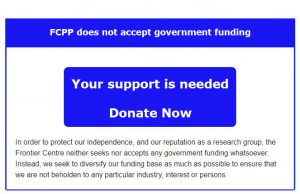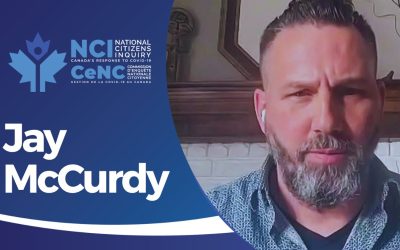We are a uniquely privileged society. We place the highest premium on our justice system, press, judiciary, and protections of human rights. And yet even we continue to see troubling trends with regard to unwanted sexualized behaviour and sexual assault across the country.
A few conditions serve as indicators of a society’s health and well-being—human rights, a free press, and a fair and transparent judiciary among them. The most important, however, is the respect of citizens themselves, and how they treat each other—including the state of the most vulnerable. We Canadians seem to have a persistent problem.
Our national police service has failed to protect its female members, our armed services has had its highest ranking members accused of misconduct, and several members of Parliament, including senators, have been implicated in sex scandals.
Justice Michel Bastarache, in “Broken Dreams Broken Lives,” noted: “One of the key findings of this report is that the culture of the RCMP is toxic and tolerates misogynistic and homophobic attitudes amongst its leaders and members.” He further stated: “I am of the view that cultural change is highly unlikely to come from within the RCMP. It has had many years, and many reports and recommendations, and yet unacceptable behaviour continues to occur.”
We are a uniquely privileged society. We place the highest premium on our justice system, press, judiciary, and protections of human rights. And yet even we continue to see troubling trends with regard to unwanted sexualized behaviour and sexual assault across the country.
A few conditions serve as indicators of a society’s health and well-being—human rights, a free press, and a fair and transparent judiciary among them. The most important, however, is the respect of citizens themselves, and how they treat each other—including the state of the most vulnerable. We Canadians seem to have a persistent problem.
Our national police service has failed to protect its female members, our armed services has had its highest ranking members accused of misconduct, and several members of Parliament, including senators, have been implicated in sex scandals.
Justice Michel Bastarache, in “Broken Dreams Broken Lives,” noted: “One of the key findings of this report is that the culture of the RCMP is toxic and tolerates misogynistic and homophobic attitudes amongst its leaders and members.” He further stated: “I am of the view that cultural change is highly unlikely to come from within the RCMP. It has had many years, and many reports and recommendations, and yet unacceptable behaviour continues to occur.”
A federal government report, 2019 Sexual Misconduct Incident Tracking Report, described a sexualized culture within the military as “hostile” and “endemic”; there were 581 sexual assaults and 221 incidents of sexual harassment reported in the Canadian military over the last five years.
Even more troubling is the prevalence of students’ experiences of unwanted sexualized behaviours and sexual assault at postsecondary schools. 
Research confirms that young people—particularly young women—experience sexual assault and other forms of violence in higher proportions than other segments of society. But measuring numbers is not enough—despite the valiant work of advocacy groups, and reports and inquiries post facto, the damage has already been done. The issue is the genesis of the attitudes that have contributed to such misogynistic acts. Even when they are not necessarily criminal in nature, they can have prolonged and deeply negative impacts on others.
It is damaging and disappointing when adults in highly respected and professional positions are found to have violated the sanctity of another person, but it’s even more troubling that these attitudes continue to be far more prevalent among our youth—the next generation of leaders.
A recent report by Marta Burczycka of the Canadian Centre for Justice and Community Safety Statistics, “Students’ Experiences of Unwanted Sexualized Behaviours and Sexual Assault at Postsecondary Schools in the Canadian Provinces, 2019,” provides some insight into the scope of the problem. Here are some highlights from that report:
- A majority (71%) of students at Canadian postsecondary schools witnessed or experienced unwanted sexualized behaviours in a postsecondary setting in 2019—either on campus, or in an off-campus situation that involved students or other people associated with the school. Among students, 45% of those who identified as women and 32% of those who identified as men personally experienced at least one such behaviour in the context of their postsecondary studies.
Contextualized to the general population, one in four North American women will be sexually assaulted during her lifetime, and for every one hundred incidents of sexual assault, only six are reported to the police.
- Most students chose not to intervene, seek help or take other action in at least one instance when they witnessed unwanted sexualized behaviours, including 91% of women and 92% of men who witnessed such behaviours. Many women did not act because they felt uncomfortable (48% of those who did not act), because they feared negative consequences (28%), or because they feared for their safety (18%).
- Less than one in ten women (8%) and men (6%) who experienced sexual assault, and less than one in ten women (9%) and men (4%) who had experienced unwanted sexualized behaviours spoke about what happened with someone associated with the school (such as a teacher, peer support group or someone else associated with either the school administration or a student-led service). While many saw what happened as not serious enough to report, others cited a lack of knowledge about what to do or a mistrust in how the school would handle the situation.
These are important indicators of the widespread prevalence of sexual misconduct, and why perpetrators feel emboldened. It is estimated that 46 percent of women were prevented from intervening (seeking help or taking other action) because they either feared negative consequences or feared for their safety. Another 48 percent felt uncomfortable when they witnessed unwanted sexualized behaviours. The unfortunate reality is that misogynistic behaviour remains protected, either by bullying, fear, enabling, or a culture of intimidation.
- One in ten (11%) women students experienced a sexual assault in a postsecondary setting during the previous year. About one in five (19%) women who were sexually assaulted said that the assault took the form of a sexual activity to which they did not consent after they had agreed to another form of sexual activity—for example, agreeing to have protected sex and then learning it had been unprotected sex.
It is estimated over 80 percent of sex crime victims are women, that 60 percent of sexual abuse/assault victims are under the age of seventeen, and 11 percent of women suffer physical injury resulting from sexual assault.
- The majority of women (77%) and men (70%) who had experienced a sexual assault in a postsecondary setting stated that at least one incident had happened off campus. For women, off-campus restaurants or bars were the site of half (51%) of sexual assaults in a postsecondary setting.
According to sexassault.ca, 80 percent of sexual assault incidents occur in the home, and 17 percent of girls under sixteen have experienced some form of incest. It is estimated that 83 percent of disabled women will be sexually assaulted during their lifetime, and 15 percent of sexual assault victims are boys under sixteen.
Huge strides are still to be made correcting attitudes toward gender-based relations in Canada. According to the Canadian Women’s Foundation, only one in three Canadians understands what it means to give consent in sexual situations. Our belief and faith in our higher ideals conceals a deeper rot that remains to be excised and the state of affairs among our youth bodes poorly for our future.
The Vancouver Police Department tells people: “There are numerous resources available to you if you have been sexually assaulted or abused; contacting your local police service by dialing 911 should be a primary consideration. Canadian police services are required to have specially trained, sensitive, and supports available for you.
“Know that a sexual assault is any sexual contact that you do not consent to. This includes unwanted kissing, touching, penetration or attempted penetration. It may happen once or multiple times, and just because you agreed to sexual contact in the past does not mean you consent to it every time.
“Canadian law defines consent as your voluntary agreement to engage in sexual activity. Sexual touching is only lawful if you give your permission, either through words or by your actions. Silence or passivity does not equal consent. No one can legally consent to sexual activity in the future when they may be unconscious.
“You have not consented to sexual activity if:
- you express by words or actions that you do not agree to engage in the activity
- you are incapable of consenting because you are incapacitated by alcohol and/or drugs
- you are induced to engage in the activity by a person in a position of trust, power or authority, such as a teacher or boss
- you are coerced or physically forced to comply
- you have a disability or mental impairment that prevents you from making an informed choice
- you originally agreed to the activity and then express by words or actions that you no longer agree to continue
“ShelterSafe.ca is a non-governmental online resource for women and their children seeking safety from violence and abuse. The clickable map serves as a quick resource to connect women with the nearest shelter (across Canada) that can offer safety, hope, and support.
“The important thing is that you seek help—medical, psychological, legal; reach out until you have found the resources that you need. You will not be alone.”
Anil Anand is a research associate with the Frontier Centre for Public Policy.
Photo by Buro Millennial from Pexels.



